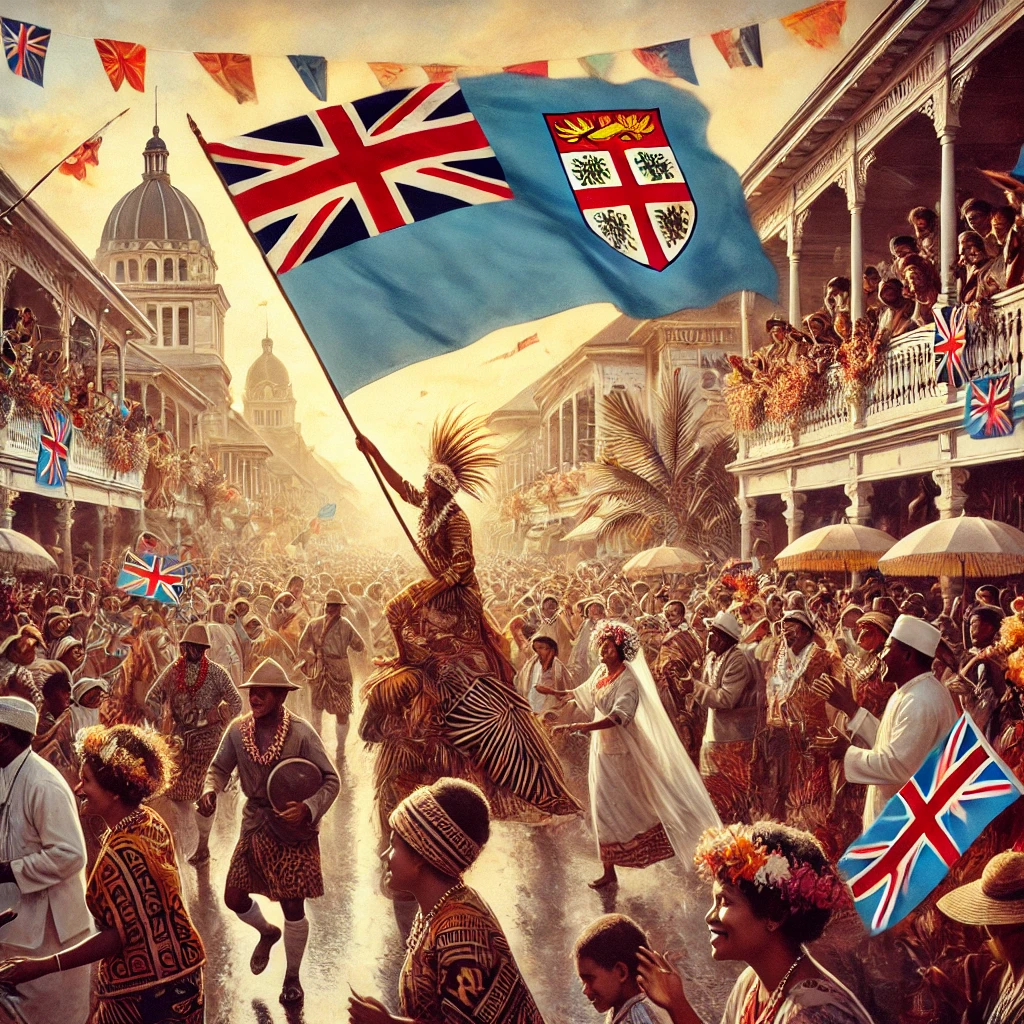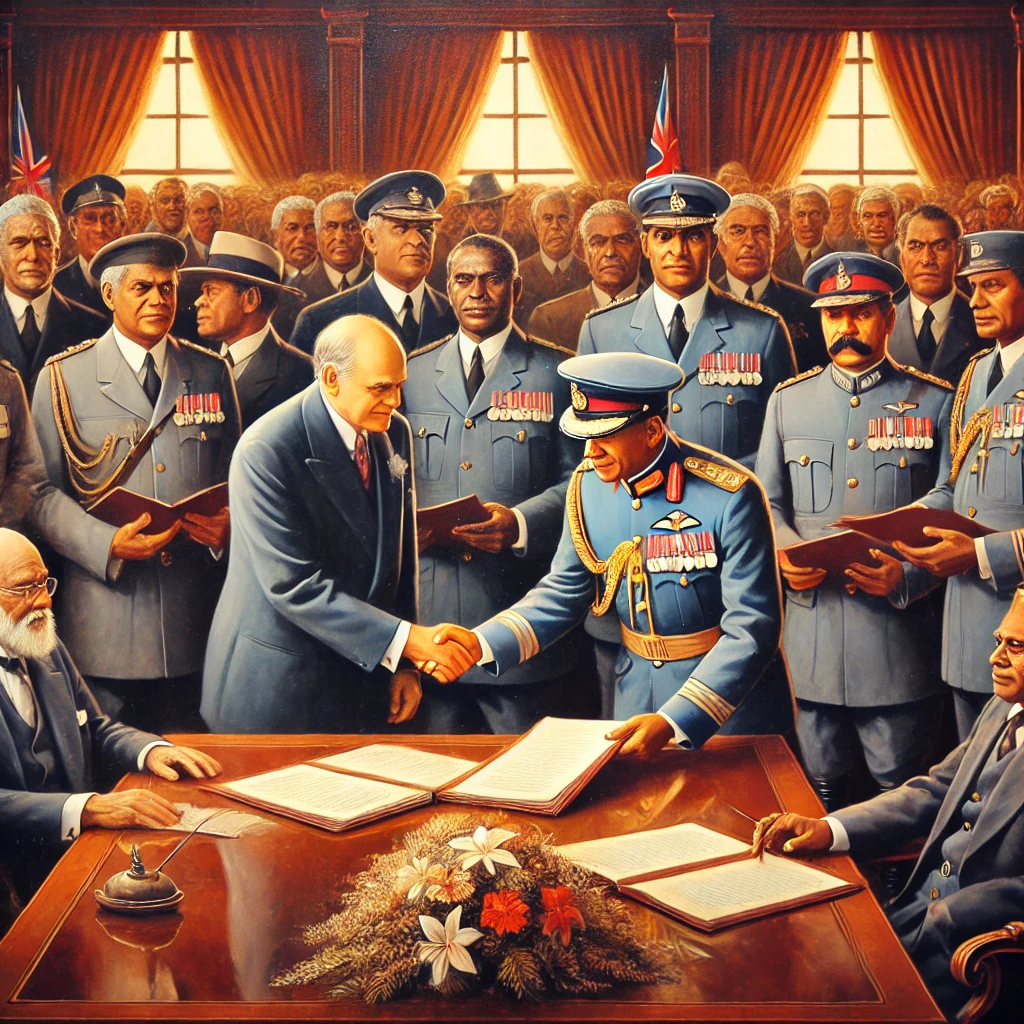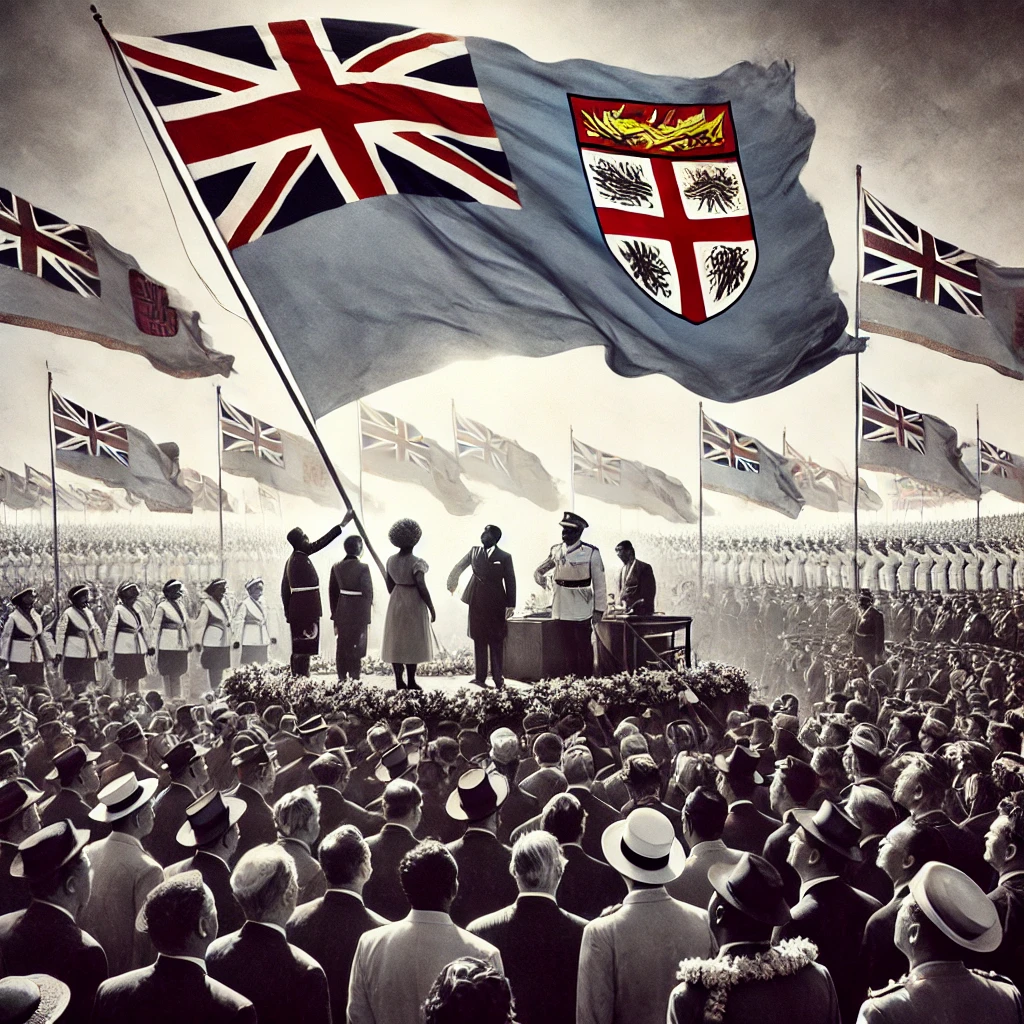On October 10, 1970, Fiji achieved independence from Great Britain, marking a significant milestone in the nation’s history and a moment of pride for its people. This transition from colonial rule to self-governance was the result of years of political activism and negotiation, as Fijians sought to assert their identity and autonomy. The newfound independence not only transformed Fiji’s political landscape but also set the stage for its development as a sovereign nation.

The Path to Independence
Fiji was ceded to Great Britain in 1874, becoming a British colony. For nearly a century, the islands were governed under colonial rule, with a significant focus on the sugar industry and the exploitation of local resources. During this time, British authorities established a system that favored European settlers, leading to economic disparities and social tensions between the indigenous Fijian population and Indo-Fijian communities.
As the mid-20th century approached, a wave of decolonization swept across the Pacific and the world, inspiring Fijians to advocate for self-rule. Political movements began to emerge, with leaders like Ratu Sir Kamisese Mara advocating for constitutional reforms and greater representation for Fijians in governance. The culmination of these efforts came in the 1960s, when Fiji held its first elections under a new constitution, paving the way for increased self-governance.

The Independence Movement
The road to independence involved extensive negotiations between Fijian leaders and the British government. In 1965, Fiji was granted internal self-government, allowing it to manage its own affairs while remaining a part of the British Empire. However, the desire for complete independence grew stronger, and Fijian nationalists continued to push for full sovereignty. In the years leading up to independence, various political parties emerged, reflecting the diverse interests of the Fijian population. The Alliance Party, led by Ratu Sir Kamisese Mara, played a crucial role in uniting different ethnic groups and advocating for independence. The party’s inclusive approach garnered significant support, leading to a successful campaign for full independence.
The Moment of Independence
On October 10, 1970, Fiji officially became an independent nation, celebrated with a ceremony in the capital city of Suva. The event was marked by festivities, parades, and the raising of the Fijian flag, symbolizing the nation’s newfound status. Ratu Sir Kamisese Mara became the first Prime Minister of Fiji, heralding a new era of self-governance and national identity. The independence celebrations were not only a reflection of national pride but also a moment of hope for the future. Fijians expressed their aspirations for unity, development, and the preservation of their cultural heritage as they embarked on the journey of self-determination.
The Challenges Ahead
While the achievement of independence was a monumental step for Fiji, the nation faced significant challenges in the years that followed. The newly independent government had to navigate complex social dynamics, particularly the relationships between indigenous Fijians and Indo-Fijians. Tensions between these groups sometimes flared, leading to political instability and social unrest in the following decades. Despite these challenges, Fiji made strides in building a democratic society and developing its economy. The government focused on improving education, healthcare, and infrastructure while promoting tourism and agriculture as key industries. Over the years, Fiji became known for its stunning landscapes, vibrant culture, and hospitality, attracting visitors from around the globe.

A Legacy of Independence
The legacy of Fiji’s independence is reflected in its ongoing commitment to self-governance and national unity. The nation has continued to evolve, embracing its multicultural identity while striving for social cohesion. Celebrations of Independence Day each October 10 serve as a reminder of the struggles and sacrifices made by those who fought for freedom. Fiji’s journey since independence has also inspired other nations in the Pacific and around the world, demonstrating the importance of resilience and determination in the pursuit of sovereignty. The spirit of independence continues to shape Fiji’s policies, culture, and international relations, positioning the nation as a key player in regional affairs.
Fiji’s independence from Great Britain on October 10, 1970, marked a significant turning point in the nation’s history, celebrating the triumph of self-determination and the enduring spirit of its people. The journey to independence was characterized by resilience, negotiation, and unity, laying the foundation for a diverse and vibrant society. As we reflect on this important milestone, we recognize Fiji’s ongoing commitment to embracing its identity, addressing challenges, and fostering a brighter future for generations to come. The legacy of independence continues to inspire Fijians and serves as a testament to the power of collective action in achieving lasting change.
